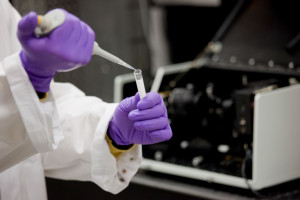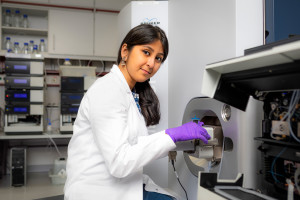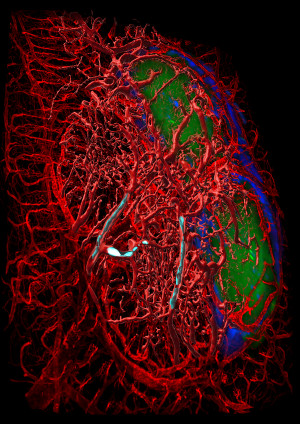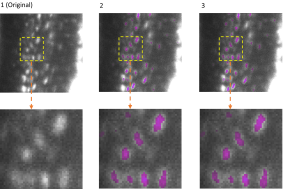Dortmund, 27th February 2020
A research project at the Federal Institute for Drugs and Medical Devices (BfArM) is dedicated to the improved detection of drug allergies. So far, the diagnostic possibilities in this field are limited; they are often costly or not meaningful. For this reason, the BfArM is researching a new test approach in a joint project with the Clinic for Dermatology and Allergology at the University Hospital RWTH Aachen, Life & Brain GmbH Bonn and the Leibniz Institute for Analytical Sciences (ISAS) based in Dortmund. The aim is to improve current diagnostic methods in order to increase patient safety.

The INA (In Vitro Detection of Drug Allergy) project therefore aims to further develop an existing in vitro method so that it is suitable for the routine use of many drugs and various forms of allergy.
Drug allergies are a particularly relevant form of allergy, the frequency of which is likely to increase further due to demographic change. However, allergies to pharmaceuticals are currently difficult to detect. Previous diagnostic procedures such as skin tests are costly and often only suitable for a few active ingredients. If patients are directly exposed to the drug in question in a test to detect the allergy, severe allergic reactions may occur in rare cases. By contrast, in vitro methods (laboratory tests) are not dangerous, as they only require blood to be drawn. However, the existing in vitro methods are currently only of limited use.
The project INA (in-vitro detection of drug allergy) therefore aims to further develop an existing in-vitro method so that it is suitable for many drugs and different forms of allergy in routine use. The target cells of allergic persons are cultured with the drug in question. This is followed by the analysis of differential gene and protein expression. This means that it is examined which genes are switched on and, if necessary, which biomolecules are formed. This should make it possible to determine whether the cells respond to the drug in question in the sense of an allergic reaction.
In this project, patients with a confirmed drug allergy are first tested for the drug in question. Control persons without allergy to the drug in question will also be tested. At the end of the research project, a protocol will be developed which will define the methodology and materials for the in vitro detection of a drug allergy for broad application - depending on the results based on gene or protein expression.
If the test system is successful, it will help to simplify the current diagnosis of drug allergies and increase patient safety.
The project, which is fully entitled "Analysis of differential gene and protein expression for in vitro detection of drug allergy", is funded by the European Regional Development Fund (EFRE).
Further information on the project can be found at https://www.bfarm.de/EN/Research/Drugallergies/_node.html.







